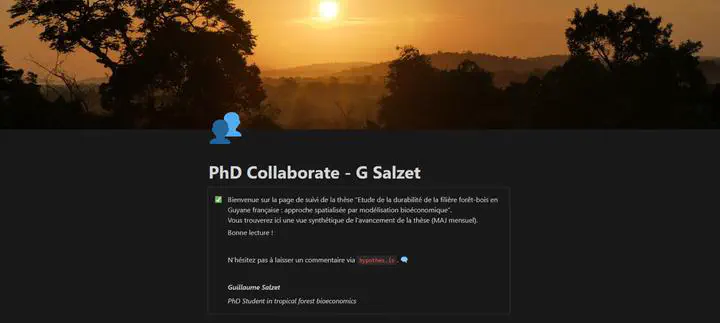
Finished
French Guiana, with its vast tropical rainforest covering 96% of its territory, is a key biodiversity hotspot in France. However, this biodiversity is under threat from increasing logging to meet growing social demand. The French government, the main owner of Guyana’s forests, manages them via the Office National des Forêts, with a conservation policy and low-impact logging methods.
The aim of this thesis is to provide an integrated analysis of conservation and timber production issues in French Guiana. The chapter 1 provides the historical and current specificities of the forest sector, highlighting its economic importance while also undelaying the pressures exerted on forest ecosystems. The following chapters examine the different dimensions of forest management in French Guiana.
Chapter 2 assesses the evolution of tree species composition on a regional scale, highlighting the impact of geomorphology and hydro-edaphic conditions on species diversity. Issues of production, carbon storage and tree species richness are mapped based on these data and analysed in relation to the location of forest management areas.
Chapters 3 and 4 focus on the impacts of logging, examining tree mortality induced by logging roads and felling gaps, as well as subsequent resilience trajectories. The results show that, despite low impact logging practices, no set of management parameters can guarantee a return to the prelogging state within a timeframe compatible with the production objective.
In conclusion, this thesis highlights the need to rethink ecological sustainability in French Guiana, and more broadly in the tropics, to ensure that ecosystems continue to function. Rather than focusing solely on maintaining their state, it highlights the importance of an integrated approach between ecology and economics to guarantee the functioning of tropical forest ecosystems.